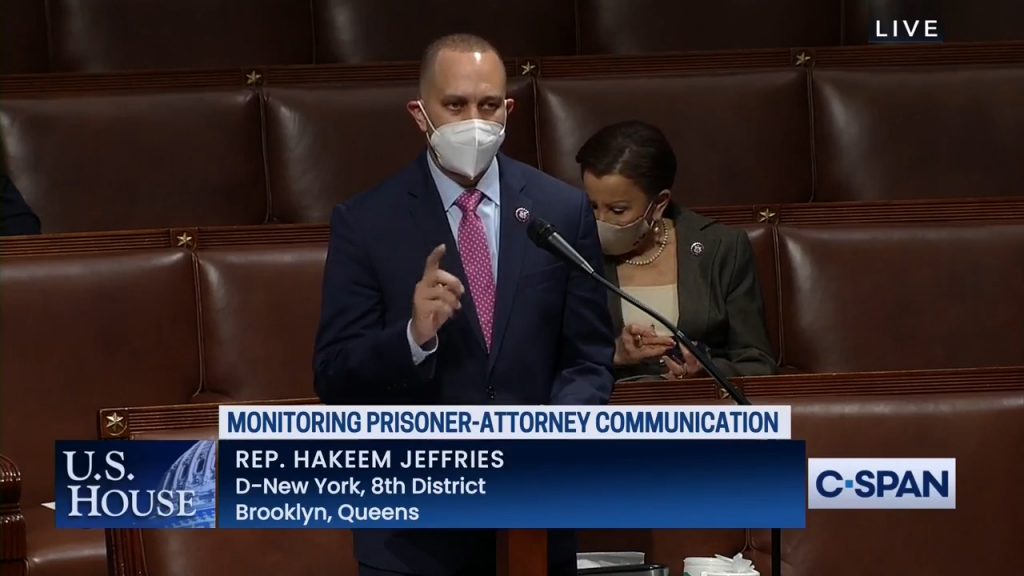HOUSE OVERWHELMINGLY PASSES REP. JEFFRIES BIPARTISAN BILL TO PROTECT COMMUNICATION BETWEEN LAWYERS AND INCARCERATED CLIENTS
WASHINGTON, DC – Today, in a vote of 414 to 11, the House of Representatives passed the Effective Assistance of Counsel in the Digital Era Act. Introduced by Rep. Hakeem Jeffries, the bipartisan legislation would bring prison policy into the 21st Century by applying attorney-client privilege to electronic communications sent or received through the Bureau of Prisons’ (BOP) email system.

“There are nearly 124,000 individuals currently in BOP custody, many of whom are in pretrial detention and have not been convicted of a crime. In our system, defendants—American citizens—are innocent until proven guilty. Like any person involved in a criminal proceeding, these individuals who are incarcerated must be able to confidentially communicate with their attorneys. The bipartisan Effective Assistance of Counsel in the Digital Era Act would enable incarcerated individuals to communicate with their legal representatives privately, safely and efficiently by prohibiting the Bureau of Prisons from monitoring privileged electronic communications,” Rep. Jeffries said in support of his bill.
A recent report by the National Association of Criminal Defense Lawyers and Berkeley Law’s Samuelson Law, Technology & Public Policy Clinic concluded that the “BOP’s decision to monitor emails causes concrete harms to incarcerated persons.”
Specifically, the bill would:
· Require the Attorney General to ensure that BOP’s email system excludes from monitoring the contents of electronic communications between an incarcerated person and their attorney or an agent of their attorney;
· Stipulate that the protections and limitations associated with the attorney-client privilege — including the crime fraud exception — apply to electronic communications sent or received through the BOP email system;
· Permit BOP to retain the contents of electronic communications until the incarcerated person is released but specifies that the contents may only be accessed under very limited circumstances; and
· Allow a court — upon motion of the defendant — to suppress evidence obtained or derived from access to the retained contents if such contents were accessed in violation of the act.
The legislation is supported by the American Bar Association, American Civil Liberties Union, Americans for Prosperity, Dream Corps, Due Process Institute, Fair and Just Prosecution, Faith and Freedom Coalition, FAMM, Federal Public & Community Defenders, Freedom Works, Law Enforcement Action Partnership, National Action Network, National Association of Criminal Defense Lawyers, Prison Fellowship and Right on Crime.